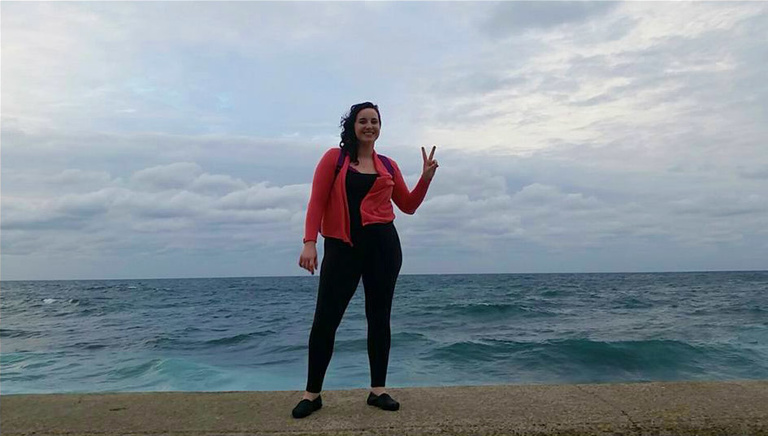
When UI student Heather Barney studied abroad in Havana, Cuba, this January, she expected to expand on her Spanish-speaking abilities, learn more about the country’s history and culture, and investigate the types of medical schools and careers Cuba has to offer to foreigners.
What she didn’t anticipate, however, was that she would be one of several students featured in a news story by Telesur, a Venezuelan broadcasting company.
The broadcast explained how Cuba is attracting foreigners worldwide to study there. Unlike many Latin American countries, it has a long tradition of doctoral programs, and has attracted graduate students and faculty alike. They offer a variety of language courses to foreigners as well.
Translated from the broadcast, Barney told Telesur that she studies Spanish and biology at the UI, and elaborated on the importance of learning the languages of the world. In the future, she hopes to be bilingual. Telesur also asked her questions about the process of repairing the relationships between the U.S. and Cuba.
“I think it is incredibly important that we open up trade with Cuba, along with tourism, to help stimulate both of our economies, while we also repair the damage we did as a nation to the island.”
Our country’s mindset toward Cuba, she explained, is antiquated. Barney described the country as an amazing place to be – populated with incredibly welcoming and well-educated people who are ready to repair the broken relationship between countries as respectfully and mutually as possible.
“(In Cuba,) I learned how to fall in love with myself. I learned how to navigate a city completely on my own in my second language. And I also found a place where I finally feel at home,” she said.
It’s all in the culture. Each barrio, or neighborhood, has its own distinct community that is tight-knit and family-oriented. The people are welcoming, constantly greeting one another with an informal handshake and besitos (little kisses). Leisure time and a pleasurable lifestyle is strongly valued, and school is taken seriously – it’s virtually unheard of for full-time college students to be working a job while they go to school.
“At home, I work two jobs and go to school full time, just to be able to afford to live. And I still have student loan debt! I think the U.S. could really learn a lot from the way they do things,” Barney said.
As she continues her education, Barney hopes that she will someday see Spanish taught alongside English in the U.S.
“The U.S. itself does not have an official language, and I think maintaining that attitude and allowing other languages and diversity to thrive is a very important part of our identity.”